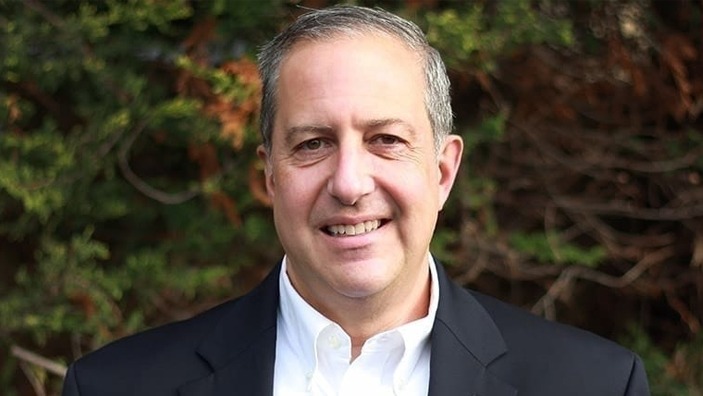
Recent books, press articles and academic studies reveal that cryptocurrencies are being used to support crimes and exploit victims. What is less clear, however, is why people still engage in cryptocurrency investing when doing so often seems self-harming.
Alan Jagolinzer, Professor of Financial Accounting at Cambridge Judge Business School, has thus dove deep into what he calls the “crypto rabbit hole” to understand why people are drawn to invest in what he describes as “a financial cesspool for some of the darkest actors on the planet”. He notes, for example, that cryptocurrency supports efforts like global drug, human, and weapons trafficking, and sextortion scams.
In his study, recently published in the Review of Accounting Studies, Alan outlines social-psychological factors that draw audiences (in this case investors) to influencers, even when some influencers lack credible expertise and many exploit their audience.
Promoting crypto trading through cult-like communities
Cryptocurrency influencers use social media platforms such as TikTok to tap into people’s need for social identity by creating cult-like inclusive communities, according to research cited in Alan’s study. “Decades of papers tell the same story: we are all driven by a need to belong,” he notes. “The drive to be part of an ‘in crowd’ is so profound,” he says, “that many people will engage in self-destructive behaviour to obtain access or increase status in certain communities. Crypto influencers exploit this and can financially profit from their flock of believers.”
The drive to be part of an ‘in crowd’ is so profound, that many people will engage in self-destructive behaviour to obtain access or increase status in certain communities. Crypto influencers exploit this and can financially profit from their flock of believers.
Particularly, crypto traders tend to disproportionately be young men, thus prompting the slang term ‘crypto bros’.
Crypto coin names that try and draw big followings
“Some crypto coin offerings try to draw cult-like followings based on names tied to religious ideals, popular fads, popular movements, popular phrases, or influential people,” the paper says, with names such as JESUS, FART, King Trump, various versions of Elon (as in Elon Musk), and Good Gensler coins, “named, probably sarcastically, after the current Securities and Exchange Commission Chair (Gary Gensler), who has publicly stated that he believes the industry is ‘rife with fraud and manipulation’”.
One coin named as CULT was launched with a manifesto that says: “I want CULT to invest in radicals and revolutionaries, CULT is a home for outcasts, for those who feel insane, for those who are and FEEL different, we are the gunpowder, the ignition, we are the all-singing, all-dancing, crap of the world.”
How crypto influencers can exploit investors
In his research, Alan discusses another study that suggests influencers can profit from drawing followers into ‘pump and dump’ schemes that drive up prices briefly before a steep market fall.
He notes, however, that there are at least 4 other (non-mutually exclusive) exploitation opportunities that go beyond pump-and-dump schemes:
1
Money laundering
Influence investors to not sell their crypto holdings (known as HODL, or hold on for dear life), to provide liquidity for illegal money laundering. The research cites a report by blockchain data firm Chainalysis saying that nearly $24 billion was laundered through cryptocurrency in 2022, up 68% from the previous year.
2
Access to exclusive events
Influence investors to increase holdings to gain access to exclusive events, such as global blockchain conferences that are priced with expensive admission tickets. “The VIP ticket cost for the Paris Blockchain Week, in April 2024, as an illustrative example, is €3,890+VAT. It includes networking and access to a VIP lounge. It can be upgraded to a MAX ticket at a total cost of €4,500+VAT to gain access to 100 pre-screened startup decks and an investors’ lounge and breakfast”.
3
Merchandise and advisory services
Selling branded t-shirts, other merchandise and advisory services to investors who HODL. The market for crypto wallets that help the storage of confidential keys is in the many billions of dollars, the research says.
4
Transaction fee revenues
Influence investors to turn over investments to generate transaction fee revenues tied to brokerage platforms in which the influencers have a financial stake.
“Importantly, influencers’ alternative strategies change the expectations for market outcomes,” Alan says in his paper. “The expected returns patterns, conditional on strategy, might look quite different to those predicted for a pump and dump scheme” which anticipates a short-term price rise followed by a price decline.
“If influencers engage in hype to support money laundering or to sell conference access fees, consulting services, and peripherals, however, one might expect to observe more stable and upward long-term prices. If influencers have incentives to churn transactions to earn fee revenue, one might expect to observe price volatility and increased volume transfers from one hyped coin to another.”
Could the crypto movement risk undermining regulation?
Alan discusses very serious concerns about other initiatives from crypto influencer communities. Crypto, he says “is an inherently populist movement. Populism intentionally undermines existing enforcement and stability infrastructure because those who share the populist beliefs do not trust that infrastructure.”
Alan’s paper notes recent attempts to undermine the regulatory authority of the US Securities and Exchange Commission and the state of Delaware judiciary as examples of these efforts. He then suggests that “research should explore market implications conditional on this stress” if regulatory systems continue to face pressure from political or other influencers. “For example, it would be interesting to understand how markets might internalise harassment of regulators, threats to regulators’ family members, or nuisance suits, legal delays, and administrative requests (for example, under FOIA [the US Freedom of Information Act]) that are designed to overwhelm presumably limited regulatory resources.”
Crypto is an inherently populist movement. Populism intentionally undermines existing enforcement and stability infrastructure because those who share the populist beliefs do not trust that infrastructure.
Crypto influencer research ties into the Cambridge Disinformation Summit
The paper ties to Alan’s work on disinformation in financial markets and other exploitive settings, which led to him organising the first Cambridge Disinformation Summit in July 2023. The next Cambridge Disinformation Summit will be held in April 2025, focusing on research papers from across disciplines that examine the efficacy of interventions that minimise harm from disinformation.
The 2025 Summit will also feature discussions on how disinformation researchers should manage the environment where they face personal threats and harassment. On this theme, the Summit’s keynote dinner will host Nina Jankowicz, CEO of The American Sunlight Project and former Executive Director for the Disinformation Governance Board, US Department of Homeland Security, Yoel Roth, Head of Trust & Safety, Match Group and former Head of Trust & Safety at Twitter, and Marianna Spring, the BBC’s Disinformation and Social Media Correspondent.
Featured research
Jagolinzer, A. (2024) “Market and regulatory implications of social identity cohorts: a discussion of crypto influencers.” Review of Accounting Studies





